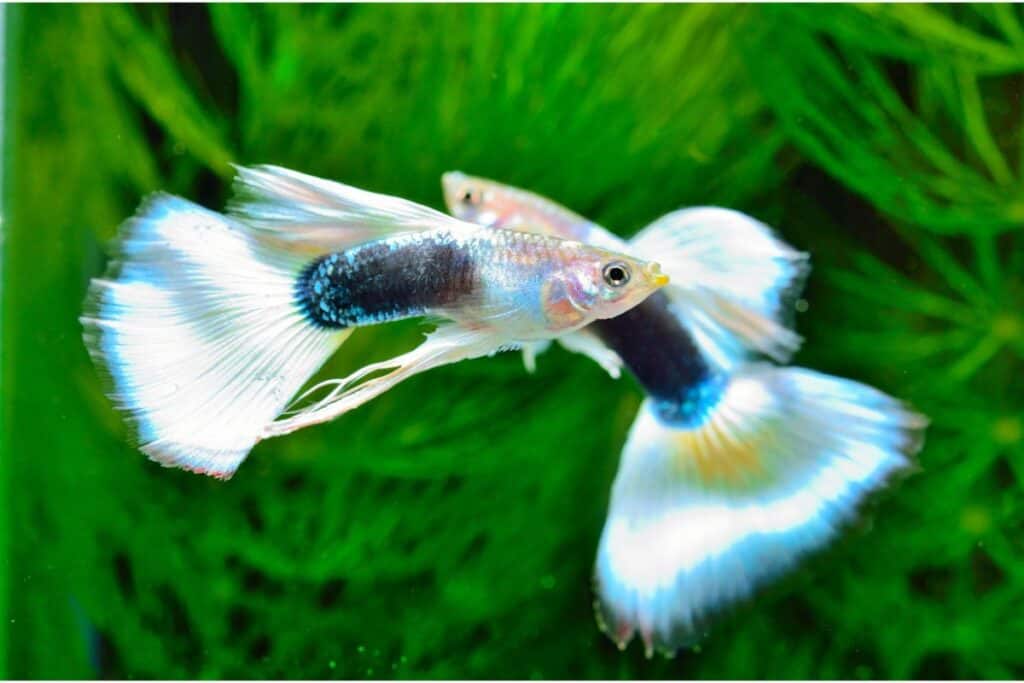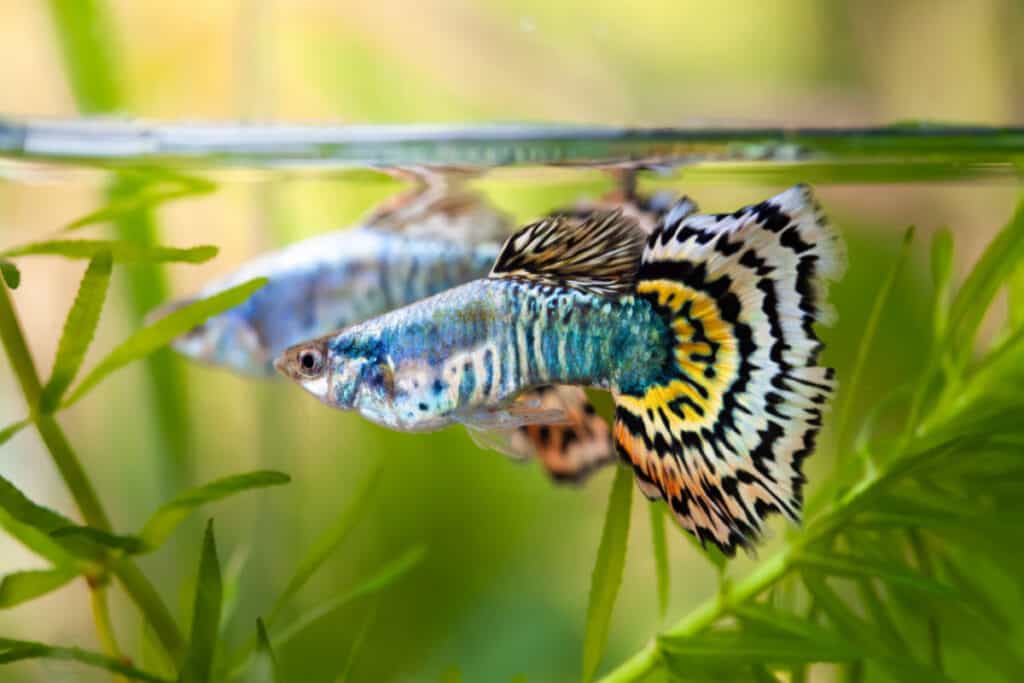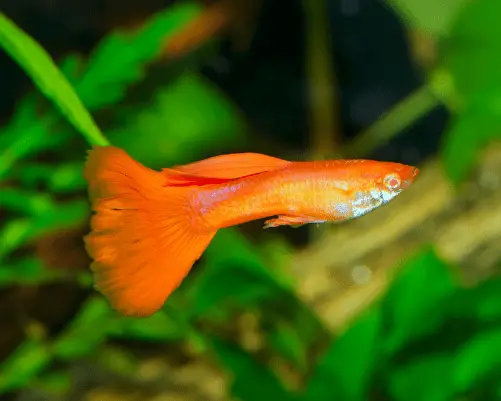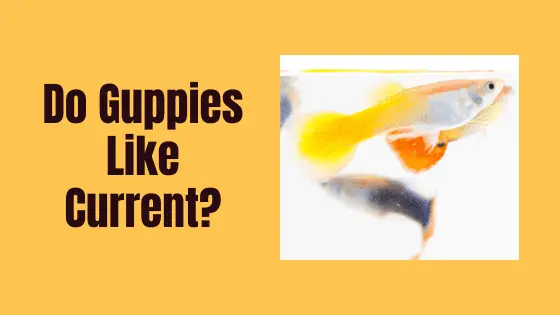Guppies are one of the most popular freshwater fish among hobbyists, known for their vibrant colors and active personalities. When it comes to creating the ideal environment for these fish, one question that often arises is whether guppies like current in their tank. In this article, we’ll explore the topic in depth and provide you with everything you need to know about guppies and water flow.
As with all breeds of fish, keeping them stress free is an important part in your role as a fish parent. One of the main ways to keep your fish happy is to try and replicate their natural environment.
Water movement, or current, is something that needs to be considered.
Guppies do not like current in their aquarium environment because they are used to rivers and bodies of water that move very slowly and are shallow.

Do Guppies Like Current?
Guppies do not like current. They originally come from small pools of water on the island of Trinidad, which are relatively calm. Over the years, pet guppies have been bred in captivity in very slow moving (if at all) environments.
Natural Habitat for Guppies.
In the wild, guppies are abundantly found in small streams and pools that are attached to larger bodies of water. They prefer the shallower water, mainly due to their small size. The deeper the water, the more chance of bigger fish, many of whom are predators.
Ideal temperature ranges for guppies are between 22°C and 27°C (72°F and 82°F). While guppies are very hardy creatures, avoid temperature fluctuations as that will unsettle them. They need to be in a steady environment.
The water should be neutral, but guppies may tolerate a slightly acidic tank with a pH between 6 and 8. This scale describes the potential hydrogen present in the water.
How to Recreate a Natural Habitat for Guppies.
Let’s find out how you can recreate a natural habitat for your group of guppies.
Firstly, make sure your tank is big enough for your guppies to be happy in. They need lots of space to swim around. My guppies use every part of the tank, so make sure it is nice and tall as well as big.
Guppies spend a lot of time at the surface and the middle of the tank, so tall plants are an excellent way to encourage them to swim up. Free-floating aquarium plants also add to the authenticity of the aquarium.
Add rocks, driftwood and a few ornaments to provide enough hiding places and break up any strong water currents.

What Can Cause Current in a Fish Tank?
Guppies will get exhausted very easily in water that has a strong current due to their small size. What are the possible causes of too much current in a fish tank?
The Filter.
The filter can cause a current in a fish tank when it is too powerful or too large for the tank it’s placed in. It is recommended to choose smaller tanks for keeping your guppy healthy and happy.
If your aquarium’s filter current is too strong, your guppy may struggle to swim and forage for food. It might become anxious and exhibit signs of stress.
Loss of Water.
You will notice more movement in the water as your water tank level goes down naturally. Make sure your tank is always topped up to stop this from happening.
This article might help – Why does the water level in my fish tank go down?
Air Pump.
If you have an air pump in your tank, this is obviously going to cause a lot more movement in the water. Now, whilst this might be good news for some fish, it isn’t great for your guppies. It is always a good idea to check if any potential new fish you want to add are ok with current before buying them.
Bigger Fish.
If you put your guppies into a tank that has a lot of bigger, active fish in, their natural movement around the tank can cause significant movement in the water, especially if they are schooling fish so you have a group of them!
How To Tell if a Guppy Is Stressed.
One of the first signs that your guppy is stressed is a change in its normal playful behaviour. Stressed fish tend to hide themselves away and not be a part of their group.
In a stressed state, your guppy may hide for long periods. When you do catch a glimpse of him, he may be swimming in unusual patterns.
The company your guppy keeps may also cause him stress. Guppies are shoaling fish, so should be kept in a group of at least 5.
Always make sure you have your male to female ratio correct. Guppies should be kept as one male for every three females (at least). If there are too many males and not enough female guppies, the males will constantly chase and harass them.
Look out for any signs of stress from your guppies if you introduce any new tank mates. The males could get a bit tetchy at first with any new additions, especially if they like the same parts of the tank that they do.
Cory Catfish (Corydoras) make ideal tank mates because they enjoy similar aquatic environments to guppies and are bottom-dwellers, so will be mostly out of their way.
How To Reduce a Strong Current in a Fish Tank.
The first thing you can do to reduce the strong current in your fish tank is to locate the flow adjustor of the aquarium filter.
The filter may be too powerful for your guppy’s tank. A power filter is not appropriate for a 10- to 30-gallon (37.85 to 113.5-liter) aquarium. Try installing a simpler sponge filter with an air pump that can be adjusted for a gentler flow.
You can block the input with a sponge light enough that it doesn’t restrict the pump or prevents it from working correctly.
You can also block the output with a filter baffle to slow the current. Here is a video showing you how to make a baffle using simple materials:
Another simple trick to reduce the water flow is to disperse the outflow toward the back wall of the fish tank or toward the surface of the water.
Finally, place some live plants underneath the outflow pipe to break up the water current as it enters the fish tank.
Conclusion.

Guppies are very popular with many first-time aquarium hobbyists. Setting up a basic tank that meets your guppy’s needs is simple and does not require much maintenance as they are a hardy breed.
It’s essential that you maintain a gentle current to avoid stressing your guppy. Happy guppies can live anywhere between one and three years if they are settled in their tank.
Related Articles:
Do guppies eat their own babies?
Why is my guppy staying at the bottom of the tank?

